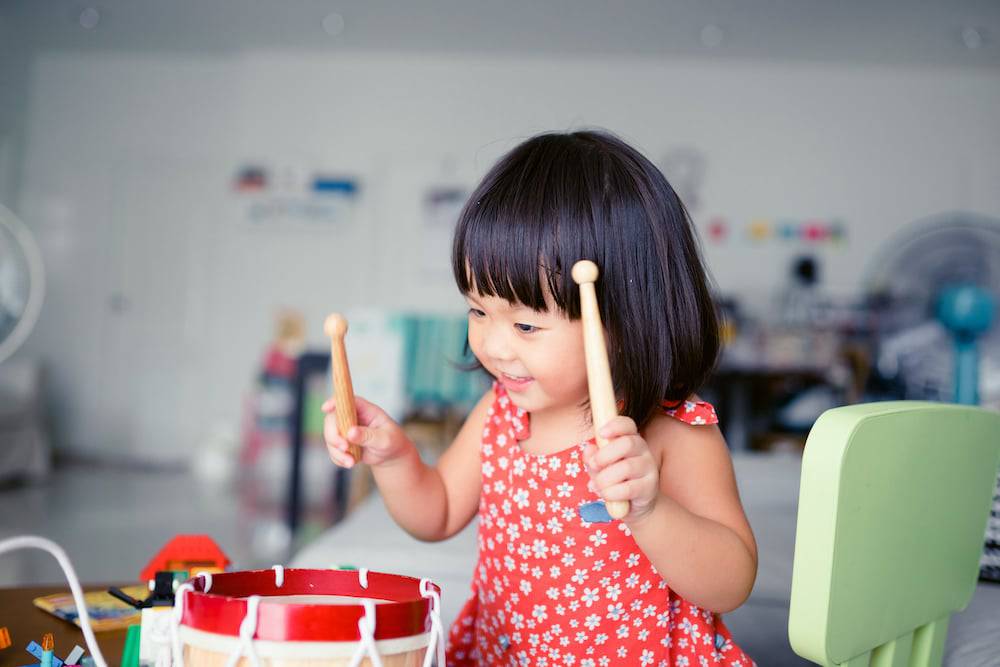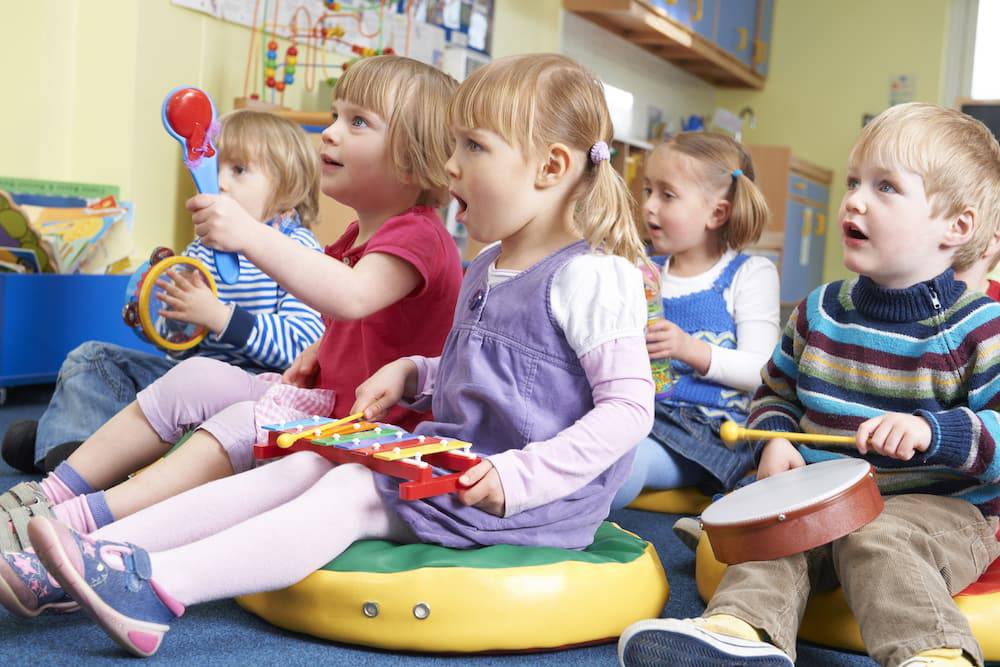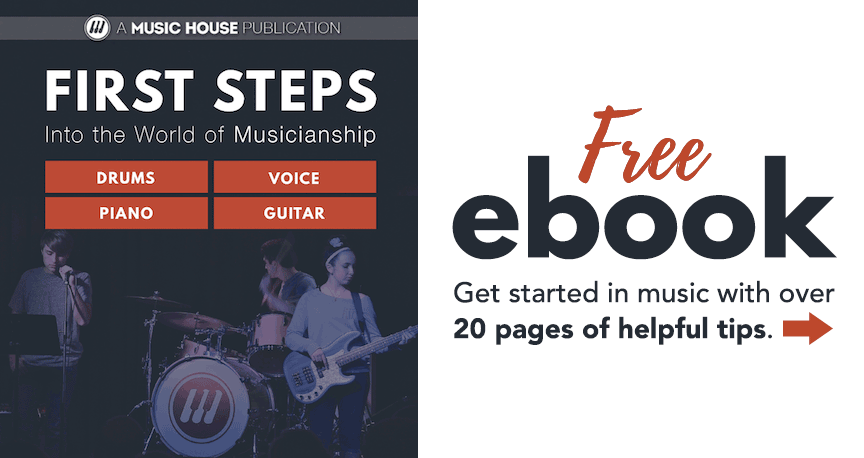The Powerful Impact Music Has on a Child's Brain Development

At its core, music is fun! It raises our spirits when we are feeling down, boosts the serotonin in our brains, and overall, just leaves us feeling better. That being said, did you know that music is also good for brain development? There is a reason that music is integrated so early into various educational programs and curriculum.
If you have little ones, you are probably more than familiar with some of the catchy songs that play on children’s TV shows. This could include music such as the alphabet song all the way to tunes teaching them how to tie their shoes. While to parents, these songs can be a bit maddening when played on repeat, they are actually serving a purpose!
Today, we want to explore the impact that music has, as well as discuss some of the benefits of signing up for face to face or online music classes for kids. Keep reading to learn more!
The Impact of Music on the Developing Brain
In the early stages of brain development, it’s all about building connections based on input from the outside world. Music is an excellent resource that provides rich and engaging information for young brains to soak up. Exposure to music also means exposure to tones, notes, and a plethora of new words and sounds. This leads to the build up of neuro pathways, which are responsible for enhancing cognitive abilities.
In the brain, there is a section called the corpus callosum. This is a band of tissues that connections the two hemispheres of the brain, serving like a bridge. Music is actually one of the best resources for helping to strengthen the corpus callosum.
What does the research say?
You might be wondering what exactly research has to say regarding music’s impact on brain development. Back in the 1990s, many parents were having their babies listen to classical music, or more specifically, Mozart. While classical music is an excellent thing to play for kids, considering the wide breadth of instruments that are used, researchers have found that almost any music is great for the brain.
That’s right, you read that last line correctly! The more music, sounds, tones, and rhythms that your child is exposed to from an early age, the more their brain will absorb and the more connections will be created.
As children age and develop, pay attention to what they are interested in and what their musical tastes are. If they express keen interest in one genre of music or instrument in particular, consider signing them up for a music class or talking to them about learning to play said instrument.
The Benefits of Learning to Play Music
While listening to music is definitely great, playing music is even better. And that’s not just our opinion! In fact, research shows that learning to play music has a wealth of benefits, especially if you start from a young age.
Below are some of the key benefits:
-
- Improved mood and better emotional regulation
- Better physical endurance
- Early language development skills
- Increased patience and discipline
- Improved memory and retention
- Better concentration
- Fine motor skills
- Improved sense of self worth and better overall self esteem
- Better test scores on standardized tests
As you can tell by this list, there is almost no aspect of brain development that music education doesn’t touch, especially when learning to play music. Starting young is great, but so is sticking to it all throughout adolescence and into adulthood as well. This will help to build more neural pathways early on.

Starting Music Lessons
Determining what instruments or stage of lessons are age appropriate for your child is very important. After all, you wouldn’t expect a three year old to tote around a giant tuba! Starting face to face or online music lessons prior to the age of 5 actually helps to increase their neuroplasticity. If you are unfamiliar with neuroplasticity, it is defined as the brain’s ability to grow, change, and heal itself.
So, which music classes or lessons are appropriate for which age? We have a little info below:
Babies and Toddlers: Ages 0-2
Did you know that we are born musical? It’s true - it’s hardwired into our brains from the womb. Exposure to music helps to develop brains through language development. Most children in this age range can’t talk yet, or if they can, it’s usually a small handful of simple words. When they hear music, they are essentially learning to process what is the raw foundation of language.
For little ones in this age group, stick to toy versions of instruments, such as plastic keyboards or ‘guitars’ that have light up buttons. They likely won’t make music that is very coherent, but they will gain a better understanding of sound in general as well as develop fine motor skills.
Early Childhood Development: Ages 2-6
Have you ever asked a child in this age range to share a toy? There are times that it can be extremely difficult to get them to be cooperative and collaborative with other children. Music can be extremely collaborative and encourages children to work together to create more dynamic pieces of music on top of all of the other cognitive benefits we have talked about.
For this age range, you can begin to introduce more complex instruments or more advanced toy versions of the instrument. For the older spectrum of children, you may even consider playing at a real piano or keyboard.
Elementary Aged Children: Ages 6-11
Improved logical thinking skills, increased hand eye coordination, and better concentration and retention are all benefits of music for children in elementary school, ranging from ages 6 to 11 or 12. More complex instruments as well as musical concepts can be introduced. This age range is an integral time to find an instrument that they enjoy and begin developing that skill.
As far as options for instruments, the world is their oyster! Do keep in mind size and physical abilities when choosing an instrument, but for the most part, there should be a wide range for them to choose from. Caring for an instrument will also help to teach them responsibility and accountability.
Join Music House
If you are interested in learning more about our music programs and seeing just how our face to face or online music classes for kids can help your child, contact us today! We would love to help your child develop their skills and play an instrumental part of them becoming a lifelong musician.

